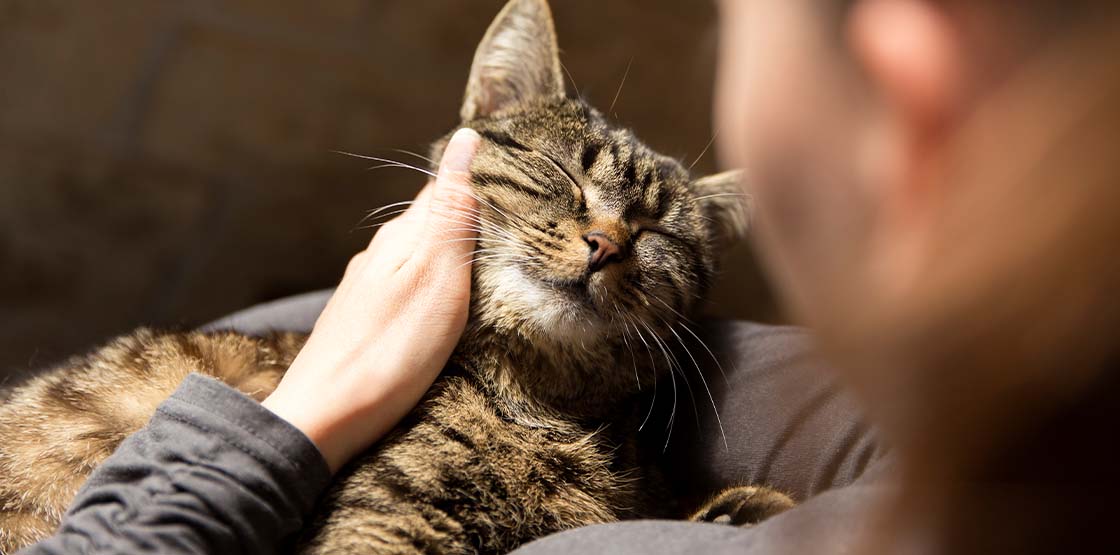How to Foster a Cat
Volunteering to be cat fosterer means that you temporarily open your home to a cat in need. It involves providing love, care and all the necessities to ensure they are healthy and happy. It might also mean helping a fearful or feral feline to develop the confidence they need to move on to their permanent family. This is why we offer tips on how to foster a cat.
Not all cat rescue organizations have facilities to hold their charges while they wait for a new home. Instead, they have a network of volunteers who provide temporary shelter. Even those organizations that do have facilities may find that some cats need special attention, which can only be provided in a home environment. It might be a cat recovering from an illness, one who has become fearful of people, or an oldie who needs the comforts of family living.
Fosterers are volunteers, but the rescue usually provides cat food and covers any veterinary costs. There are always cats who, for one reason or another, are waiting to come into the care of a shelter, but there is also a shortage of foster homes. Being a volunteer can make a massive difference to the life of a rescue cat.
Why Should You Foster a Cat?
Fostering can provide a huge sense of personal satisfaction and achievement. As your cat goes off to their new home, healthy and well cared for, you know that you have made a real difference to their quality of life.
Seniors can make excellent foster carers, and there is no age limit to getting involved. If you have ever been concerned about what happens to a pet if you are no longer there, fostering could be the perfect solution. The knowledge that the rescue organization is always there to provide support means that you can enjoy the company of a pet without any long-term worries.
You might have avoided the commitment of a pet if you enjoy traveling or take several holidays a year. This is when short-term fostering can work really well. Just let the rescue know when you are available, and you will be able to provide the perfect halfway-home for a cat in need.
Sometimes the grief that comes from losing a pet can prevent us from committing to another companion animal. Fostering means that you can enjoy the company of a cat but then enjoy the sense of satisfaction from seeing them go off to their new and loving home.
How to Get Involved With Cat Fostering
Your local shelter is probably going to be your first point of contact. Even if they do not use foster carers for their felines, they will know of other local organizations who would love to hear from you. Don't be surprised if you are asked to fill out a form or if a member of the rescue asks to arrange a home visit. This helps the rescue understand what the right type of cat will be for you and your setup. It's also the perfect opportunity for you to ask any questions that you may have.
Do take a moment to consider the type of cat that you feel would be a good fit for your home. You may feel more comfortable with an older, steadier cat, or perhaps you would like the challenge of a kitten. Rescues often have feral cats who need fostering with someone who can spend a lot of time with them so that they begin to enjoy the company. But do consider in advance if this is something that you would like to be involved in and how much support the rescue will provide.
You May Also Like:
Related Search Topics (Ads):
Supplies Needed to Foster Cats
Most rescues either provide the supplies you will need, or they will reimburse you for your expenses. Do check this out with the organization before you begin fostering so that you know exactly what the process will be. Either way, you will need to have the following in place before your first foster cat arrives:
- Food and water bowls
- Litter tray
- Food supplies
- Treats
- Toys
Oh, and do not forget a good supply of patience, understanding and unconditional love!
How Long Will I Foster a Cat For?
There are lots of factors that will influence how long it will take for your foster to move on to their forever home. For some cat's it might just be a matter of a few days as they recover from an operation or gain strength after being a stray on the streets. It might also be that they managed to be in the right place at the right time to capture the attention of an adopter and they quickly move on.
For others, it might be several months or even longer before they are matched with the perfect family. Did you know that black cats spend more time in rescue before they get rehomed and that as a cat gets older, they tend to be overlooked, with many adopters preferring younger cats and kittens? Make sure that you let the rescue know your availability for fostering; that way, you will be matched with the right cat.
When your foster cat does move on to its forever home, it is going to be a bittersweet situation. There might be a few tears, especially if you have had to work hard to gain their trust or if they have been with you several months. You might even wonder why you put yourself through it. But once your next foster cat arrives, you will soon be ready to repeat it all again!

